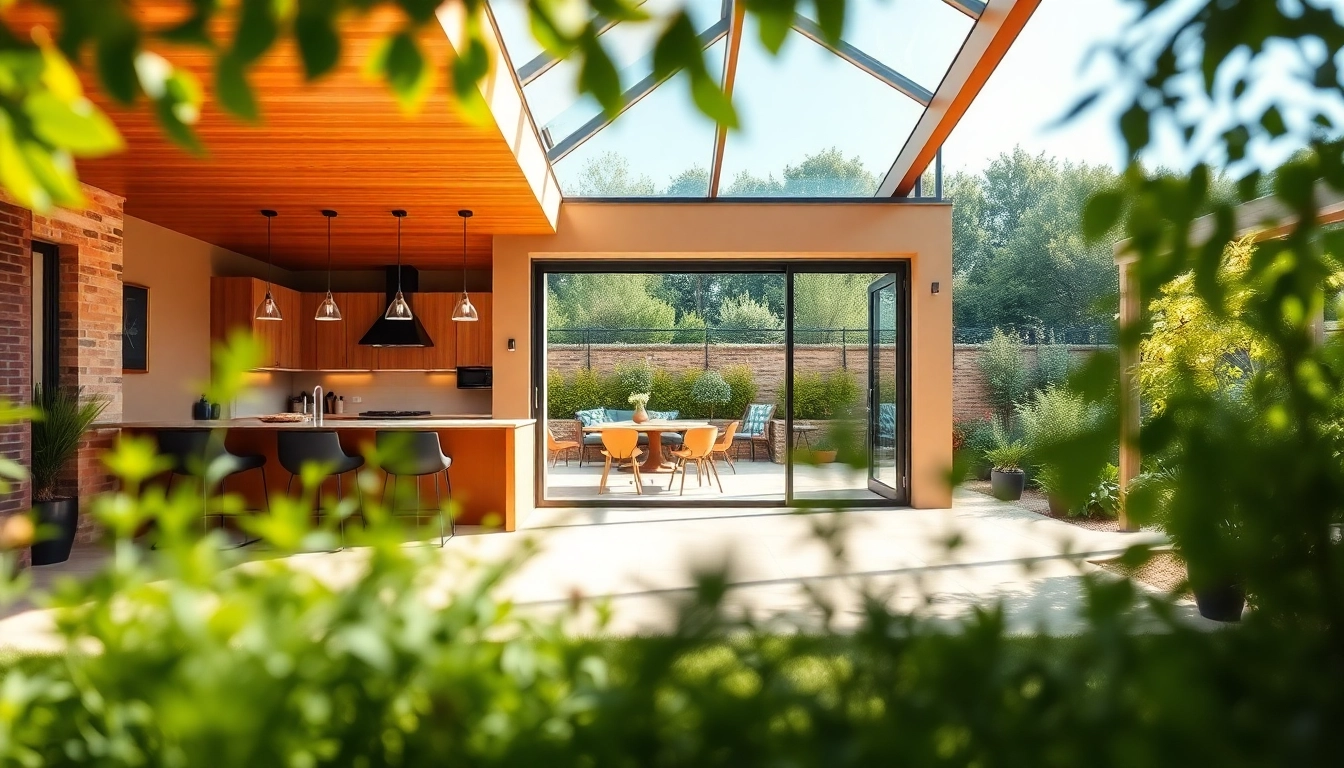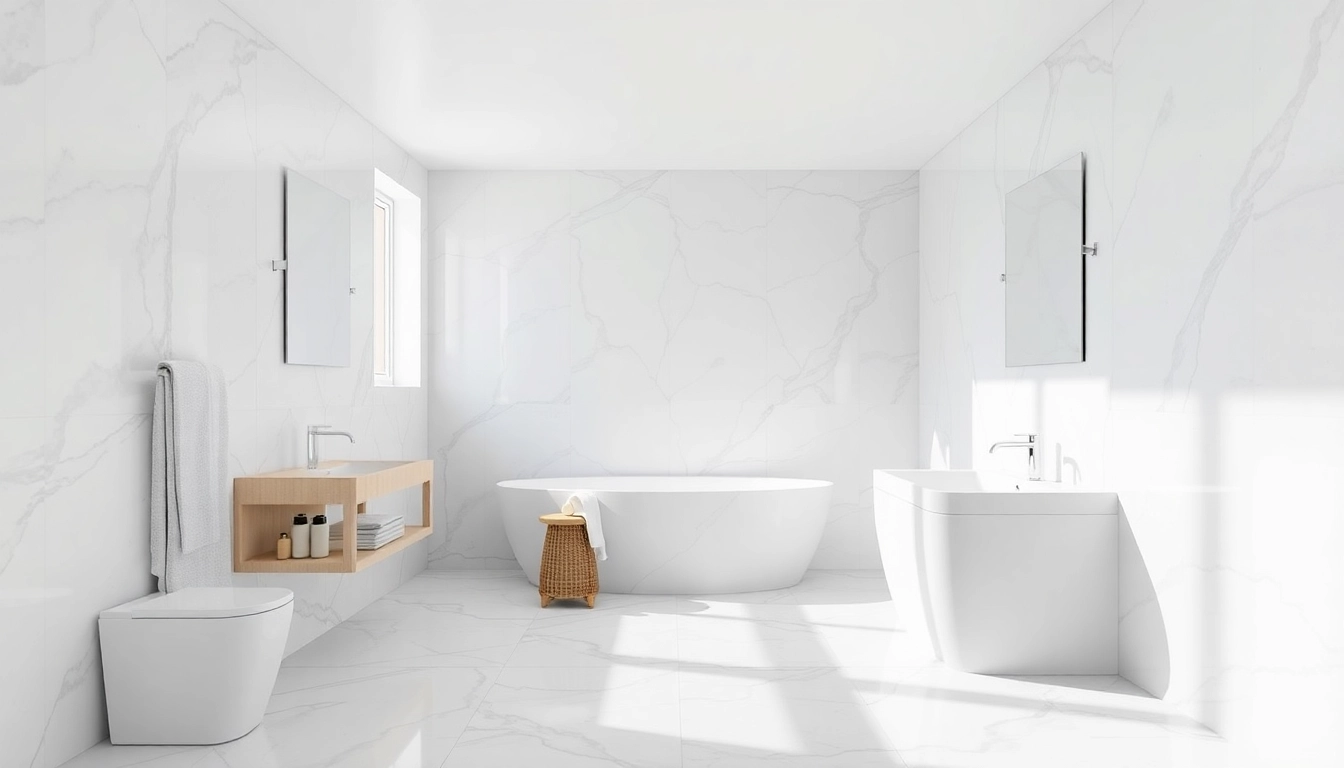Understanding Home Extensions
What Are Home Extensions?
Home extensions refer to the process of enlarging an existing residential property by adding new space. This can take many forms, including extra rooms, facilities like bathrooms or kitchens, or even additional floors. Extensions allow homeowners to adapt their living spaces to changing needs without the hassle of moving to a new residence. With the rising cost of real estate, many are opting for home extensions to create the extra space they need while enhancing their property’s value.
Types of Home Extensions Available
When considering a home extension, it’s essential to know the various types available, which can overlap in their design and functionalities. Here are some common types:
- Single Storey Extensions: Ideal for expanding living areas such as kitchens, lounges, or dining rooms. These extensions typically extend outwards from the house and can significantly enhance usable space.
- Double Storey Extensions: Providing even more space, double-storey extensions allow homeowners to add new bedrooms or bathrooms on the upper floor while remaining situated on the lower level.
- Wrap-Around Extensions: Combining rear and side extensions, wrap-around options offer homeowners an L-shaped extension to create expansive living areas.
- Porches: Less invasive, porches bring a significant aesthetic and functional upgrade, providing shelter and a warm welcome to guests.
- Basement Conversions: Ideal for properties in urban settings, existing basements can be converted into living spaces, providing additional room without the need to expand externally.
The Benefits of Adding Home Extensions
Adding a home extension comes with numerous benefits, including:
- Increased Space: Extensions can accommodate growing families, create space for hobbies, or simply make a home more comfortable.
- Enhanced Property Value: A well-executed extension can significantly increase the market value of a home, making it a lucrative investment.
- Personalization: Home extensions allow for customization, enabling homeowners to design spaces that fit their specific needs and styles.
- Avoiding Relocation: Instead of the costly process of buying a new home, extensions provide a practical solution to space issues, retaining the familiarity of one’s current neighborhood.
Planning Your Home Extension Project
Essential Permits and Regulations for Home Extensions
Before embarking on an extension project, it’s crucial to understand the permits and regulations involved. In many jurisdictions, homeowners must acquire planning permission from local authorities. Building regulations are also in place to ensure the safety and structural integrity of the extension. This process usually involves submitting architectural plans and potentially undergoing inspections at various stages of the construction. A professional contractor or architect can provide invaluable assistance in navigating these legal requirements.
Budgeting for Your Home Extension
Budgeting is perhaps the most vital step in planning your home extension. Factors influencing the overall cost include:
- Type of Extension: Single-storey extensions generally cost less than double-storey ones due to the complexity of building.
- Materials Used: High-quality materials may incur a higher initial expenditure but can provide longevity and better aesthetics.
- Labour Costs: Local labor rates vary, so researching contractors and getting multiple quotes can ensure you get the best value.
In general, the average home extension cost can range significantly depending on these factors; thus, clearly defined budgets can mitigate unexpected expenses.
Choosing the Right Contractors for Home Extensions
Choosing a reliable contractor can make or break your home extension project. Recommendations from friends or family can lead to trusted professionals. Additionally, reviewing online portfolios, client testimonials, and credentials can support your decision. Key considerations when selecting a contractor include:
- Experience: Contractors with a proven history in home extensions will be familiar with common challenges and regulations.
- Communication: A contractor should clearly communicate project timelines, costs, and their approach to your specific needs.
- Insurance and Guarantees: Ensure any contractor has the proper insurance and warranties for pieces of work, offering protection during and after construction.
Design Ideas for Home Extensions
Modern Trends in Home Extensions
Homeowners increasingly seek to modernize their spaces through design. Here are trending options:
- Open Floor Plans: Removing walls creates a feeling of spaciousness and enhances natural light.
- Large Glass Panels: Expansive windows or bi-fold doors create seamless transitions between indoor and outdoor spaces.
- Use of Natural Light: Skylights and strategically placed windows can brighten the interior and reduce energy costs.
Creative Uses for Home Extensions
Extensions aren’t just about adding rooms; they can serve innovative functions:
- Home Office: As remote work becomes common, converting an extension into an office space promotes productivity while separating work from relaxation.
- Guest Suites: Providing comfort for visitors while maintaining privacy can be achieved with a dedicated space.
- Entertainment Areas: Extensions tailored for games rooms or home theatres can significantly enhance social activities.
Sustainable Materials for Eco-Friendly Home Extensions
Incorporating sustainability into your home extension can have numerous benefits, from reducing energy consumption to enhancing the property’s appeal. Consider the following materials:
- Recycled Materials: Using recycled bricks or timber can lower your carbon footprint.
- Insulating Glass: Double or triple-glazed windows help maintain internal temperatures and cut heating bills.
- Solar Panels: Installing solar technology can provide renewable energy for your additional space.
Cost of Home Extensions
Average Costs for Different Types of Home Extensions
Understanding the average costs associated with various extension types can help shape your budget:
- Single Storey Extensions: Typically $15,000 – $50,000
- Double Storey Extensions: Range from $30,000 – $100,000
- Wrap-Around Extensions: Can cost between $40,000 – $120,000, depending on complexity
Factors Influencing Home Extension Costs
Several key factors can influence the final cost of a home extension:
- Location: Urban areas generally see higher costs due to land prices.
- Design Features: Incorporating high-end finishes and fixtures can increase expenses.
- Site Conditions: Access issues, existing structures, and landscaping can impact labor and material costs.
Ways to Save on Home Extension Expenses
While extensions can be costly, there are several strategies to manage expenses:
- Consider Simpler Designs: Straightforward structures generally cost less.
- Do Some Work Yourself: Tackling aspects of the project can reduce labor costs.
- Materials: Researching materials and finding alternatives can offer substantial savings without sacrificing quality.
Case Studies of Successful Home Extensions
Residential Success Stories of Home Extensions
Real-life examples of successful home extensions can offer inspiration and illustrate possibilities:
- Case Study 1: The Turner Family transformed their three-bedroom home with a sizeable rear extension that included an open-plan kitchen-dining area, enhancing flow and functionality, ultimately boosting their home’s market value.
- Case Study 2: The Robinsons opted for a double-storey extension, adding an extra bedroom on the top floor and a spacious family room on the ground level. This project not only provided more space but also improved their home energy efficiency with modern insulation.
Before and After: Home Extension Transformations
Visual transformations fuel interest in extensions, showcasing the potential of clever design. Homeowners often share before-and-after comparisons, revealing striking changes and value uplift after extensions are completed.
Customer Testimonials on Home Extensions Experiences
Hearing from clients who have gone through the process can provide real insights:
“Our kitchen extension has changed our lives. We love the open layout, and it’s perfect for entertaining!” – Lisa H.
“Adapting our home for our growing family has been seamless, and we’re thrilled with the results!” – Mark S.


